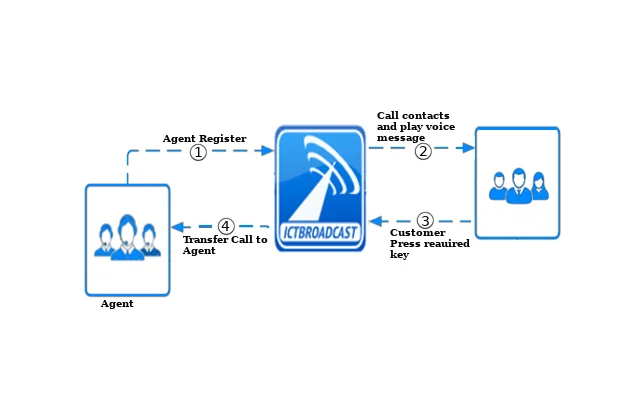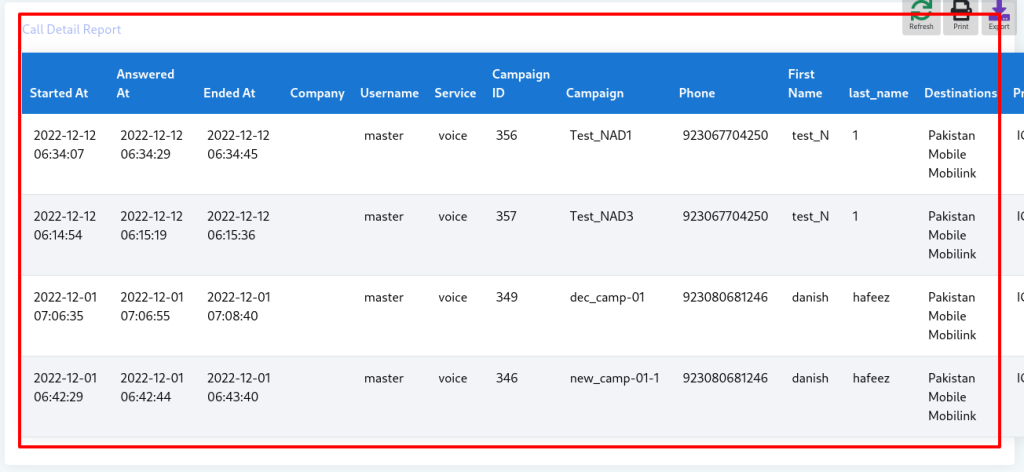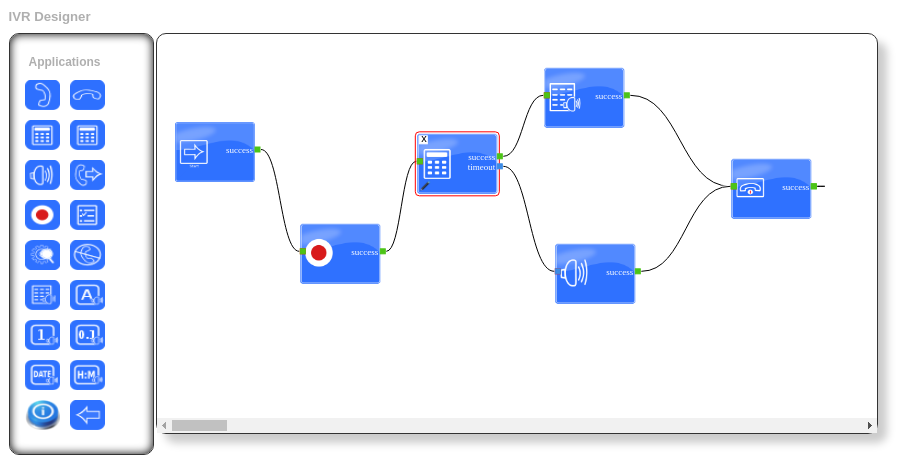In today’s fast-paced digital landscape, businesses face increasing pressure to meet ever-evolving customer expectations. As customers demand quicker responses, personalized interactions, and seamless experiences across multiple channels, traditional customer service methods often fall short. This is where advanced contact center software comes into play, revolutionizing customer support and helping businesses stay ahead of the curve.
The Challenges of Modern Customer Demands
Modern customers expect:
- Quick Response Times: Customers now expect immediate assistance and resolution. Slow response times can lead to frustration and dissatisfaction, driving customers to seek out competitors.
- Personalized Interactions: Generic responses are no longer acceptable. Customers want interactions tailored to their unique needs and history with the company.
- Omnichannel Support: Customers demand a seamless experience across various platforms, including phone, email, chat, social media, and more. They want to switch between channels without having to repeat themselves.
- 24/7 Availability: In a globalized world, customers expect support at any time, regardless of business hours. This expectation is particularly strong in industries such as e-commerce and technology.
- Self-Service Options: Many customers prefer to find solutions on their own before contacting support. Providing robust self-service options can enhance customer satisfaction and reduce the burden on support teams.
Meeting these demands can be challenging without the right tools and technology. Businesses that fail to adapt risk losing customers to competitors who can provide better service. This is where advanced contact center software proves invaluable.
What is Advanced Contact Center Software?
Advanced contact center software integrates multiple communication channels, customer data, and advanced technologies like AI, machine learning, and open source VoIP technologies to enhance customer support. It provides a comprehensive solution that includes:
Omnichannel Support: A unified platform for phone, email, chat, social media, and more. This ensures that customers have a consistent experience regardless of the channel they use.
CRM Integration: Access to customer history and data enables personalized interactions, improving customer satisfaction and loyalty.
Analytics and Reporting: Provides insights into customer interactions and agent performance, allowing for continuous improvement and optimization.
Workforce Management: Tools to manage and optimize agent schedules and workloads, ensuring that customer support is always adequately staffed.
Self-Service Portals: Allow customers to find answers and solutions on their own, reducing the volume of inquiries that require human intervention.
Key Features of Advanced Contact Center Software
Omnichannel Communication:
Unified Interface: Manage all communication channels through a single interface. This streamlines the support process and ensures consistency in customer interactions.
Consistent Experience: Customers receive the same quality of support regardless of the channel they choose, enhancing their overall experience.
Seamless Transfers: Customer information can be transferred effortlessly across channels, preventing the need for customers to repeat themselves.
Customer Relationship Management (CRM) Integration:
Customer History: Access past interactions and purchase history to provide context and personalized service.
Personalized Interactions: Tailor responses based on customer data, improving satisfaction and loyalty.
Sales Integration: Connect support with sales efforts for upselling and cross-selling opportunities, turning support interactions into revenue-generating activities.
Dialing Modes:
- Preview Dialing: Allows agents to view customer information before making a call, enabling personalized and informed interactions.

- Progressive Dialing: Automatically dials the next number on the list only when an agent is available, increasing efficiency and reducing idle time.
- Manual Dialing: Agents manually dial phone numbers, allowing for personalized and controlled interactions. This mode is useful for highly targeted and sensitive calls where a personal touch is crucial.
Interactive Voice Response (IVR) Designer:
- Customizable Menus: Create and manage IVR menus to guide customers to the appropriate department or resource.

- Self-Service Options: Allow customers to perform tasks like checking account balances or order statuses without needing to speak to an agent.
- Call Routing: Efficiently route calls based on customer inputs, ensuring they reach the right agent or department quickly.
Analytics and Reporting:

Performance Metrics: Monitor key performance indicators (KPIs) such as response times, resolution rates, and customer satisfaction scores.
Customer Insights: Analyze customer behavior and feedback to identify trends and areas for improvement.
Agent Performance: Track agent productivity and performance, identifying top performers and those needing additional training.
Workforce Management:
Scheduling: Optimize agent schedules to ensure adequate coverage during peak times and reduce idle time during slower periods.
Skill-Based Routing: Direct queries to the most qualified agents based on their skills and expertise.
Benefits of Advanced Contact Center Software
Enhanced Customer Experience:
-
- Faster Response Times: Reduce wait times with AI and automation, ensuring customers receive prompt assistance.
- Personalized Service: Tailor interactions to meet individual customer needs, improving satisfaction and loyalty.
- Consistent Support: Ensure uniformity in service quality across all channels, enhancing the overall customer experience.
Increased Efficiency:
-
- Automated Processes: Free up agents for more complex queries by automating routine tasks.
- Optimized Workforce: Ensure the right agents are available at the right times, improving productivity and reducing costs.
- Streamlined Operations: Integrate various tools and platforms into a single solution, simplifying management and reducing complexity.
Improved Agent Performance:
-
- Better Training: Provide agents with the tools and knowledge they need to succeed, improving their performance and satisfaction.
- Reduced Burnout: Automate routine tasks to prevent agent fatigue and burnout, leading to higher retention rates.
- Performance Monitoring: Use analytics to identify and address performance issues, ensuring continuous improvement.
Cost Savings:
-
- Reduced Operational Costs: Automate routine tasks and optimize workforce management to reduce costs.
- Increased Productivity: Improve agent efficiency and reduce downtime, maximizing the return on investment.
- Enhanced Customer Retention: Improve customer satisfaction and loyalty, reducing churn and increasing lifetime value.
Conclusion:
Keeping up with customer demands is crucial for any business aiming to thrive in today’s competitive landscape. Advanced contact center software provides a robust solution to meet these demands, offering a myriad of features that enhance customer experience, increase operational efficiency, and improve overall performance. By implementing the right contact center software, businesses can not only meet but exceed customer expectations, fostering loyalty and driving long-term success.
Investing in advanced contact center software is no longer optional; it’s essential for staying competitive. Are you worrying about keeping up with customer demands? Advanced contact center software can help, ensuring your business is equipped to deliver exceptional customer support in a fast-paced, ever-changing market.
Leveraging open source in ICT

